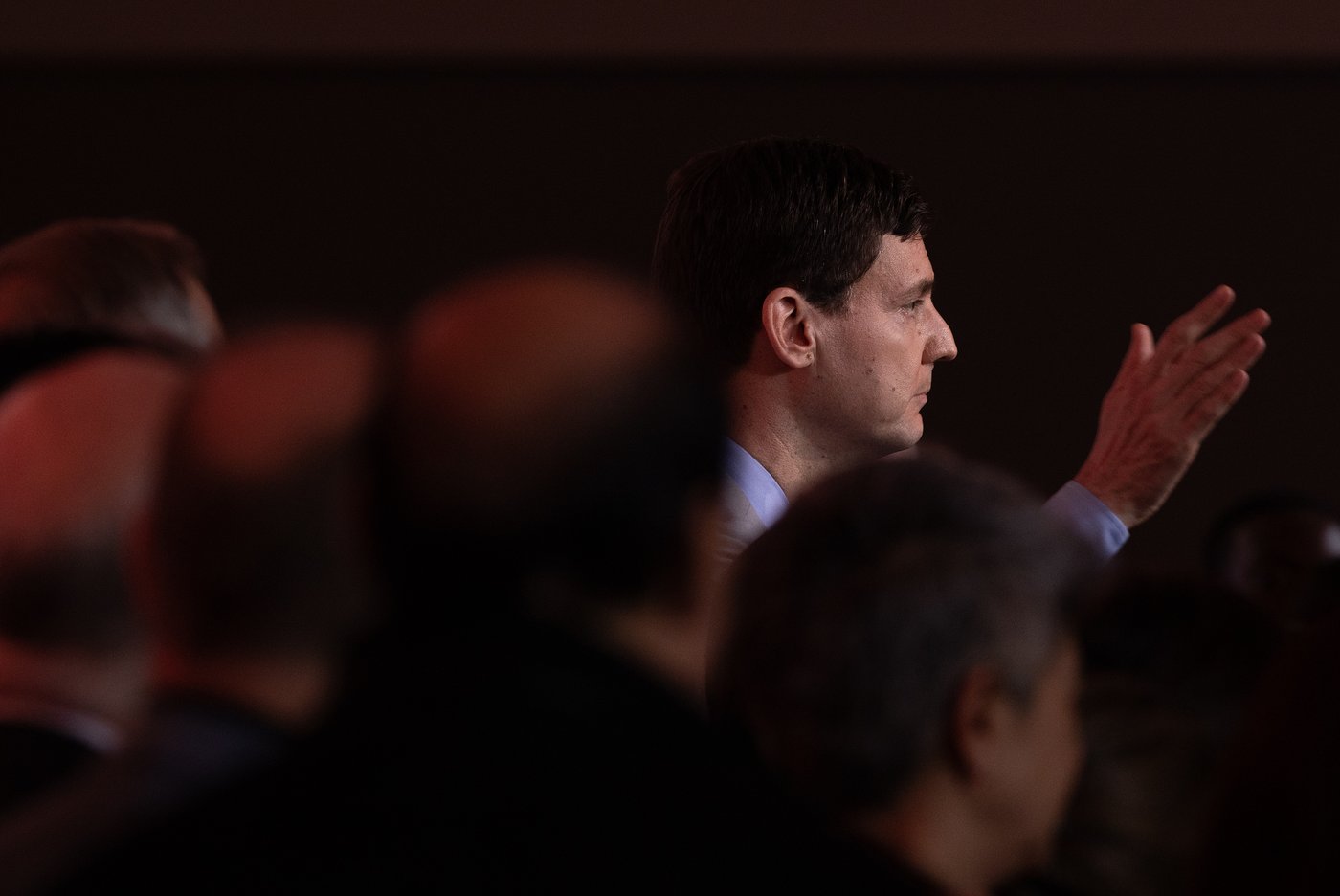Elevate your local knowledge
Sign up for the iNFOnews newsletter today!
Sign up for the iNFOnews newsletter today!
Selecting your primary region ensures you get the stories that matter to you first.

VICTORIA — Legislation to fast-track construction of a northern power line has squeaked through the British Columbia legislature thanks to a deciding vote by the Speaker for the bill that Premier David Eby said would force an election if it failed.
The confidence vote on the North Coast Transmission Line passed third reading on Wednesday by a count of 47 to 46 with Speaker Raj Chouhan breaking the tie and it now awaits final approval by the lieutenant-governor.
All New Democrats voted for the project, which the federal government is also considering fast-tracking as a project of national significance. Ottawa is also providing the project a credit of just under $140 million, but B.C. is hoping for additional financial support.
Eby said last month that he would call an early election if the legislation on the transmission line failed, calling any attempt to delay or prevent the bill from going forward “a direct threat to the economic prosperity” of B.C.
Eby listed off what he said were the future benefits of the line during question period on Thursday, including 10,000 jobs, $1 billion a year for government revenues, and $50 billion in mining development.
“I know they hate our success as a province,” Eby said, addressing the Opposition B.C. Conservatives.
He added that the Conservatives oppose projects like the North Coast Transmission Line because they want to form government.
“If we are successful as a province, they are going to have to stay over there,” he said, gesturing to the Opposition benches.
The planned power line between Prince George and Terrace, with an estimated $6-billion cost, would service several resource projects in northwestern B.C., including mines and the Ksi Lisims LNG project, which is also being considered by Ottawa for fast-tracking.
Current plans call for the first phase of the transmission line to be completed by fall of 2030, the second phase to be completed by mid-2032, with final completion scheduled for 2032-2034. Work is scheduled to get underway next year.
Adrian Dix, B.C.’s minister of energy and climate solutions, welcomed passage of the bill, while downplaying questions about whether it was worth the risk to make it a confidence vote.
“This is a bill that is great for jobs, great for communities, great for the climate,” Dix said. “It talks about partnerships with First Nations. Other parties can explain why they may be opposed to such a bill, but I would say this: there is an old saying in politics, ‘you need to win by one vote, the rest is for ego.’ I’m a very modest minister.”
The two B.C. Greens and the three Independents in the legislature joined the Opposition B.C. Conservatives to vote against the legislation.
The Greens had tried to amend the bill during preceding debate in the committee stage, but the bill arrived unchanged on the house floor just after 6 p.m. with Government House Leader Mike Farnworth immediately calling for a vote on third reading.
The two Green MLAs had previously advanced the bill with the hope of amending it, but switched their votes.
Green member Jeremy Valeriote said his party wants British Columbians to access this province’s clean energy advantage.
“However, the premier and (Dix) have made it clear that the North Coast Transmission Line is being advanced primarily as a public subsidy for LNG projects, rather than as a long-term investment in B.C.’s clean energy future.”
Conservative Leader John Rustad restated his opposition to the project before the vote while speaking to reporters.
He questioned whether the project would stay within its current estimated budget of $6 billion and time-frame, and whether B.C. can push enough power through it, once completed.
Conservative Larry Neufeld, the party’s critic for oil, gas and LNG, said the money could be better spent on other projects.
“Perhaps, we should be looking at nation-building projects that, in fact, do generate revenue for this country, and for this province,” he said.
This report by The Canadian Press was first published Nov. 20, 2025.
This site is protected by reCAPTCHA and the Google Privacy Policy and Terms of Service apply.
Want to share your thoughts, add context, or connect with others in your community?
You must be logged in to post a comment.